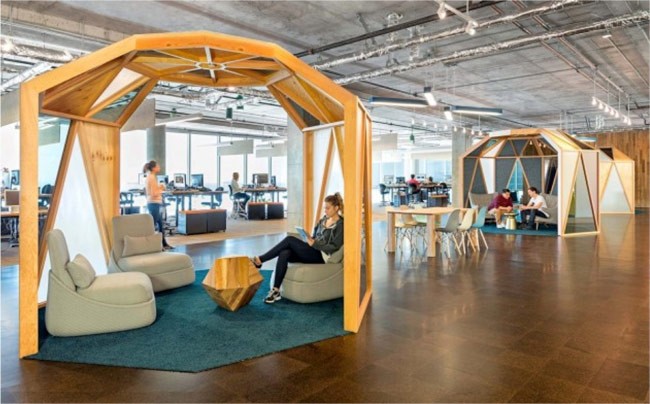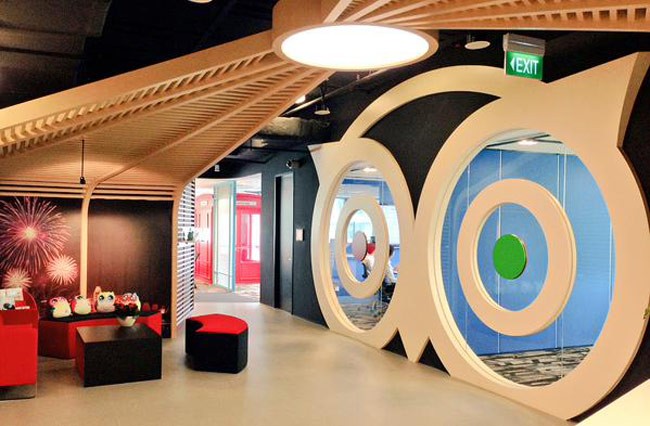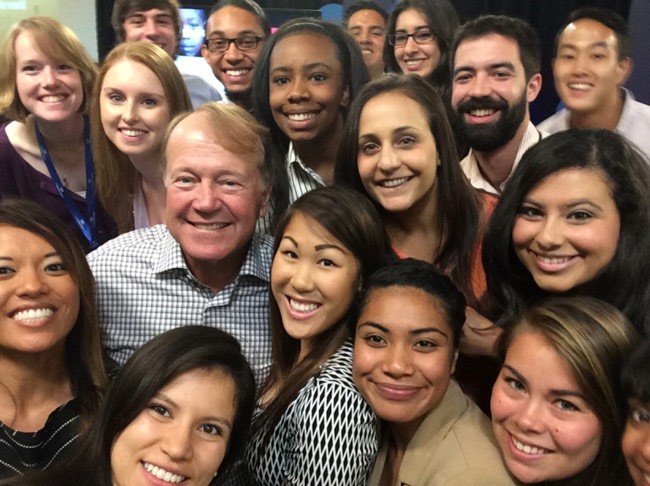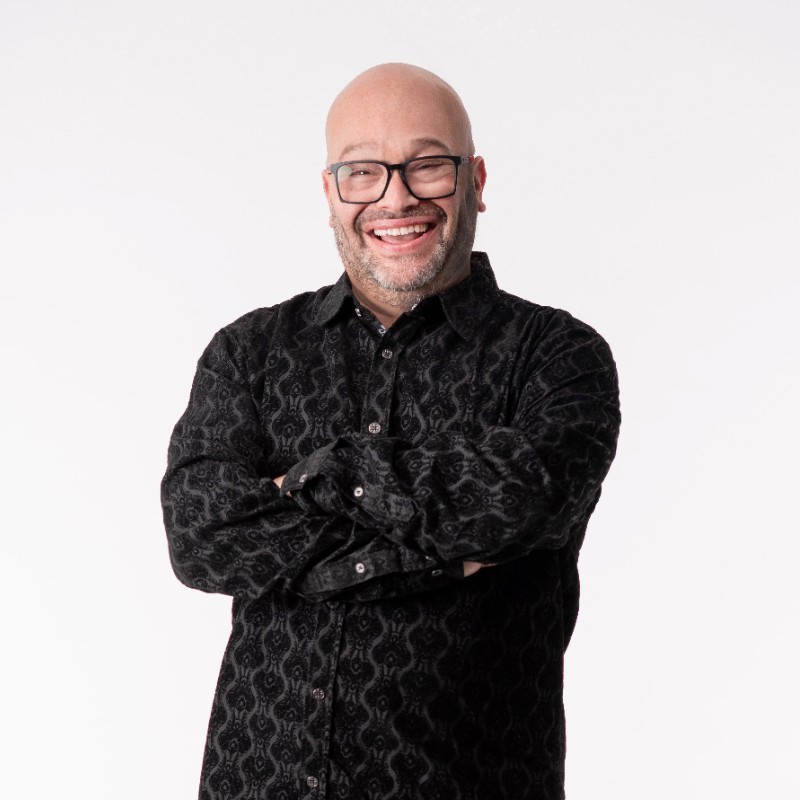A Tale of Two Coasts: How Cisco & TripAdvisor Compete for Talent Against Startups
Part 2 of 5
In part one of our series, we discussed how startups and small, fast growing companies compete for talent in arguably the two hottest markets for talent in the United States.
In part two, we turn our attention to the big guys. While it may seem on the surface that these companies have a huge advantage over the lesser known startups (budget, benefits, name recognition, etc.), they too face some very considerable challenges.
Ironically, a significant concern for large organizations is the allure of the startup culture and the mixed perception of joining a “big” company. Startups can market themselves as a faster career trajectory to candidates, and of course the foosball tables and beer fridges don’t hurt either. The perception of startup culture can be very appealing to millennial talent and to those who have experienced larger environments that lacked that culture or perks.
In highly competitive markets like Boston and Silicon Valley, where candidates have more than just options but also have information, employment brand and workplace culture are becoming differentiators in attracting talent. While it might seem that the larger, brand-name companies don’t need to address this as much as startups do, the reality is far different.
The view from Cisco and TripAdvisor
Cisco Systems is one of the more well-known and regarded companies in the world. They are headquartered in San Jose, CA but also have a very strong presence in Boston. This gives them a very unique perspective on hiring in both markets.

TripAdvisor is also a global, well-known brand with over 2,700 employees based in Massachusetts.

I spoke with Jill Larsen, VP HR - Strategic Talent Acquisition at Cisco Systems and Lori Russo, Head of Global Talent Acquisition at TripAdvisor about these geographies and how they attract talent and compete with the booming startup scene in these markets.
Can you describe the current hiring challenges you see specific to hiring in both Silicon Valley and in Boston?
Jill Larsen: On both the East and West Coast, there are strong entrepreneurial investment streams and top rated universities, so we are competing for talent with large / mid-size companies as well as with Private Equity / Venture Capital firms and startups. This complex landscape requires a differentiated, generational approach to hiring and building capabilities.
Lori Russo: Our hiring challenges often sit across specific type hires – for example, our critical hires like product and engineering candidates where we have a very high bar and there isn’t a large supply. We do find our competition ranges from startups to the larger brands across the US, so when communicating with candidates we are not only selling our brand, the work, and the people - we are selling Boston and, for us, specifically Needham/Newton.
How do you think your employment/talent brand factors into your ability to attract talent?
Jill Larsen: Talent brands are now held at the employee level – employees past and present create the talent brand. Social media transparency requires talent brands and employee value propositions to be more authentic and connected than ever before. To make that connection come to life, we’ve developed the “People Deal.” It embodies who we are, what employees can expect of us as a company and what we can expect of our employees. In the past Cisco had taken a product-driven approach to talent brand and we are now taking a talent approach to our brand. This includes social media, video, crowdsourcing, career sites, microsites and some disruptive brand approaches.

Lori Russo: Our employer brand plays a significant role in our ability to attract talent. The type of talent we look for has many choices of where to start their next career journey, and they want to know what impact they will have and about the people they will work with. Therefore, pulling back the curtains and letting candidates get a glimpse into what it’s really like at TripAdvisor is important. Being vocal about our Employer Value Proposition and having employees share it is incredibly impactful and it plays a major role in talent attraction.

Can you describe what your specific challenges have been hiring in these markets as a larger, well-known company?
Jill Larsen: Our talent brand is stronger on the West Coast than on the East Coast, as Cisco has a smaller footprint in Boston. However, Boston is one of our top innovation hubs so we see this as a great opportunity. The challenge is that Cisco doesn’t have one talent brand, it has many. We have startups, new growth areas, and innovation. But, we also have traditional networking, software, and core hardware roles. The challenge is how to harness that.
We are working to tell our story in a way that showcases how diverse and compelling our employees and technology are. We realize that the candidate and employee experience is far reaching and I believe it can make or break your talent brand. We want to make sure the people-centric nature of Cisco is reflected in our hiring and our talent brand.
Lori Russo: In Boston, we are considered a well-known large company. As the world’s largest travel site, we have great consumer brand recognition. However, often times when we talk to candidates they don’t realize we are headquartered in Boston, nor how big we are or how successful we are. The challenge up until now has been our employer brand, and being sought after by the types of candidates we want to hire: those who understand our consumer brand but also understand the employer brand.
We have focused on getting our story out in market, using social channels, and engaging with candidates in the environments they are comfortable. We are also working to be very contextual in our messaging and focus on the candidate vs. what we want. Once we attract and engage them, and share the TripAdvisor story, we have them hooked. We need to continue sharing what is like to work at TripAdvisor so that the right people are coming to us to work in the long-term.
How do you compete with the allure of start-ups in these markets?
Jill Larsen: What doesn’t work is trying to compete by playing someone else’s game – for example, foosball, video games, free food, dogs at work, casual dress, etc. These things actually exist at Cisco or in our startups and acquisitions, but what we have found is that they aren’t as important a driver as some may think in attracting talent.
What is important is being able to have passion around what you do, to believe that your work is meaningful, that you can innovate and change the world and, most of all, that you can have fun. We showcase our innovation, the trajectory of our employees, and the compensation potential. The more we let our employees and technologies tell the story, the easier it becomes. We are changing the way we work, live play and learn. That’s how we compete.
Lori Russo: TripAdvisor likes to consider itself startup-like, although we are a global company of 2700+. We live and breathe bythe “speed wins” philosophy. We don’t let the size of our company dictate how we function – we do not get caught up in process and procedures. This type of environment is critical to competing with the allure of startups and, not to mention, the other employee perks, benefits and fun things we have that are added value. However, it’s really the type of work and the impact employees can have that we need to keep at the forefront of our decision-making.
What is your perception for East Coast technology recruitment/employment brand challenges vs. Silicon Valley recruiting/employment brand challenges?
Jill Larsen: Location and a strong relationship to the universities is more important on the East Coast. If you aren’t in Cambridge, Boston or on Rt.128, it is quite hard to attract talent. Many of the university students are likely to leave Boston upon graduation so having an ideal office location matters.
I also think that on the East Coast recruiting is more network-driven than in Silicon Valley. More phone calls, meetings, and who you know versus the social media, virtual, email culture of the West Coast, where it is really the seven degrees of separation that connect you to someone versus the personal relationship. Cisco’s employment brand is a lot stronger in the Valley because our footprint is immense there. We haven’t done as much until recently to publicize Cisco’s presence on the East Coast, but that’s changing. I think it’s harder to connect the dots on the East Coast sometimes and the talent is less mobile from a tenure perspective than on the West Coast where two to three year tenures are becoming the norm.
Lori Russo: Boston is a loved city, but I don’t believe right now it is the city that is “top of mind” for candidates when thinking of where they want to work. Frankly, I don’t think that people realize the tech buzz that currently exists in Boston and think that they will need to go somewhere else to get it. Most people think they will need to go to Silicon Valley to get that community, tech buzz vibe, and all the perks, great work and smart people that come along with.
The reality is that this is happening on the East Coast too; not as out of hand, because I think we do a great job of mixing what you get in perks and fun with great people and great work. Boston-based leading tech companies need to continue to find ways to message the authenticity of their employer brand, lead the conversation, and get employees to share their stories. That’s what will keep talent here or bring more talent to Boston versus just the company name itself – that will always be hard to compete with.
--
It is clear that even the giant companies with great brand recognition cannot rest on their laurels today. In the past, these companies could steamroll the competition when competing for talent, but the landscape has changed. Whether recruiting millennials or senior talent, it is quite evident that to attract top candidates companies, large or small, need to focus on a lot of the same shared initiatives:
- A compelling employment brand.
- A top notch candidate experience.
- Competitive compensation and benefits.
- A great workplace environment.
Next up, we dig deeper on the details. How do you do this effectively, especially when starting from scratch?
*Featured Boston and San Francisco images by Justin Jensen and Ilirjan Rrumbullaku
Topics: Recruiting tips Employer brand
Related articles




